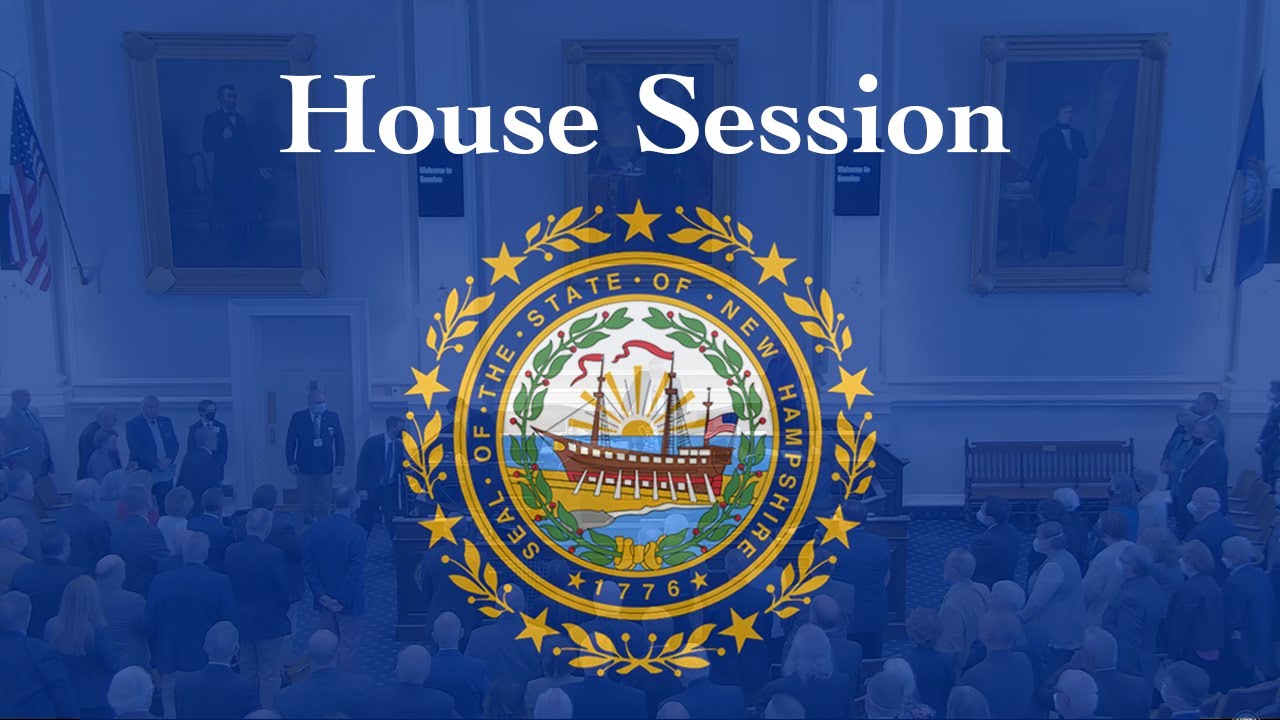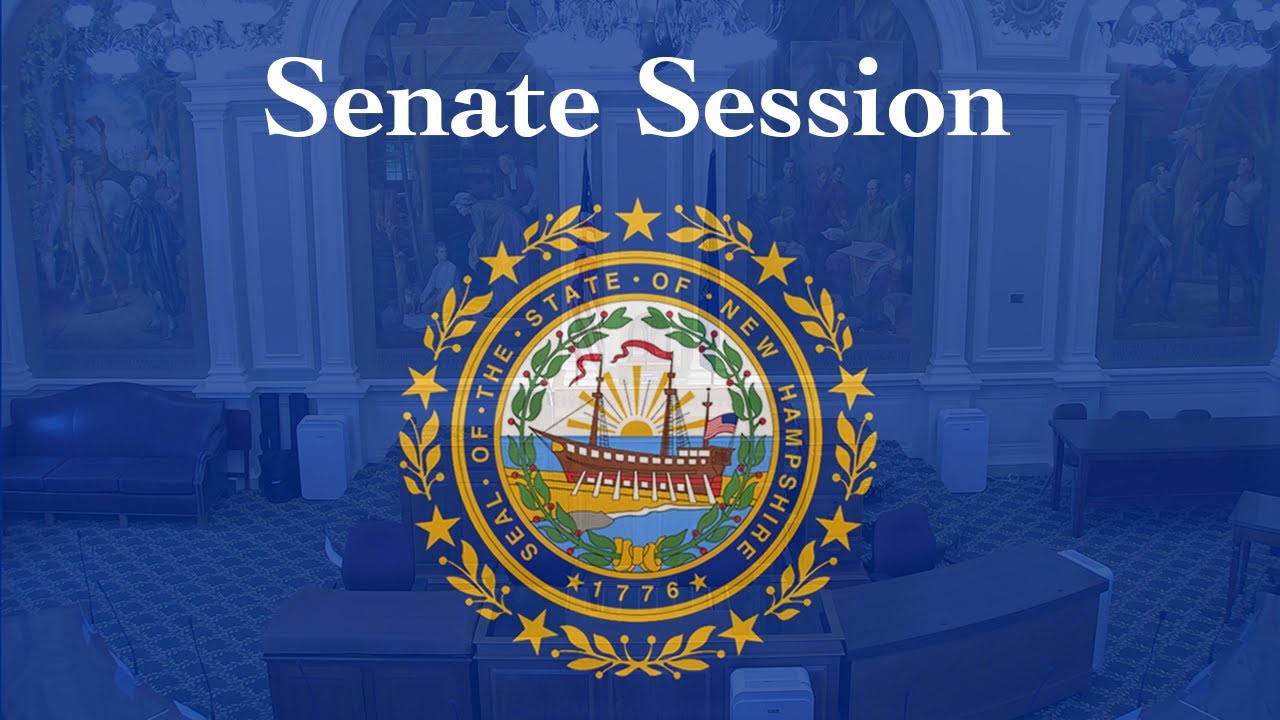Politics
New Hampshire Bill To Ease Psilocybin Penalties Advances Through House But Is Tabled In Senate
The New Hampshire Senate last week voted to scrap compromise legislation that would have lowered the state’s criminal penalty for first-time psilocybin possession while also creating mandatory minimum sentences around fentanyl.
A bicameral conference committee struck an agreement on the bill, SB 14, earlier this month, returning it to both chambers for sign-off on the deal. While the House initially rejected the proposal Thursday, representatives returned from their lunch break, took up the bill again and passed it on a 185–182 reconsideration vote.
On the Senate side, however, Sen. Bill Gannon (R)—who briefly sat on the conference committee before being replaced by Sen. Daryl Abbas (R)—moved on the chamber floor that the measure be tabled, effectively killing it. The motion passed on a voice vote without any discussion.
The bill’s psilocybin provisions were championed by Rep. Kevin Verville (R), who has said that while he wasn’t a fan of the mandatory minimums for fentanyl, he saw the bill as an acceptable compromise to reduce first-time psilocybin offenses from the current felony charge down to an unspecified misdemeanor.
In email to Marijuana Moment after the Senate’s tabling vote, Verville called the move “highly regrettable,” asserting that senators “chose to protect and stand with the fentanyl dealers that are destroying NH families and communities, and killing our citizens, while simultaneously rejecting a common sense compromise in limited quantity, first offense possession of psilocybin penalty to a misdemeanor from the current felony charge.”
Nevertheless, the representative wrote: “This experience has invigorated me, not discouraged me.”
“Next year you can expect to see both psilocybin penalty and medical bills come forward,” he added.
Earlier this year, the Senate scuttled a separate, more ambitious psilocybin measure from Verville, HB 528. As passed by the House, it would have removed criminal penalties for a first-time possession offense, making it a $100 civil violation.
At one point, a Senate panel attached language to that bill that would add mandatory minimums around fentanyl and fatal overdoses. At the time, Sen. Tara Reardon (D) asked colleagues if the idea was that “we’re trading” the House-favored move to reduce psilocybin penalties in exchange “for enhanced penalties” on fentanyl.
“One might say that, yes,” replied Gannon, chair of the Senate committee.
If passed, HB 528 would have make second and third psilocybin offenses Class B misdemeanors, carrying fines of up to $500 and $1,000, respectively, but with no risk of jail time. Fourth and subsequent offenses would remain classified as felonies.
Sales and distribution of the substance would still be illegal; the reform would apply only to “a person 18 years of age or older who obtains, purchases, transports, possesses, or uses psilocybin.”
As originally introduced by Verville, the legislation would have completely removed penalties around obtaining, purchasing, transporting, possessing or using psilocybin, effectively legalizing it on a noncommercial basis. However a House committee amended the bill before unanimously advancing it in March.
Verville said in his email Friday that the legislative discussion around psilocybin, though it didn’t yield tangible reform this session, “is evidence that the Overton Window relative to psychedelics has shifted.” In other words, lawmakers—and the public at large—are increasingly open to psychedelics reform as reasonable, practicable policy.
“It is clear that New Hampshire is ready to reject the arcane psychedelics policies of the 1960s, and embrace modest, but common sense reform,” he said, adding that there “is a growing, albeit unofficial, psychedelic caucus in NH and beyond. I assure you that I am far from finished on these matters.”
Despite SB 14‘s origin as a bill to stiffen criminal penalties around fentanyl and overdose deaths, advocates of drug prohibition cheered the bill’s demise this week.
The groups Foundation for Drug Policy Solutions (FDPS), led by anti-drug crusader Kevin Sabet who also founded Smart Approaches to Marijuana (SAM), said on social media that it “APPLAUDS NEW HAMPSHIRE FOR TABLING SENATE BILL 14.”
Sabet, FDPS’s president, said both Republicans and Democrats “stood up for public health” in tabling the bill.
“New Hampshire’s prison’s are not filled with mushroom felons,” he said in a statement; “the stepdown in severity would have addressed what amounts to a non-issue. Kudos to the legislators who understood that normalizing psilocybin through reduced penalties sends a wider message: These dangerous substances are somehow safe or therapeutic.”
As passed by the Senate earlier this session, SB 14 would have established mandatory minimum sentences for certain fentanyl offenses. But a House committee added language to reduce the penalty for psilocybin, making it a misdemeanor rather than a felony to possess up to 3/4 of an ounce of the psychedelic—though on the first offense. Subsequent offenses would remain felonies.
“Any subsequent offense after the first would still be a felony offense,” Abbas noted at a later conference committee hearing on the bill.
He noted that the first possession penalty would be an unclassified misdemeanor, meaning prosecutors would have discretion to charge the conduct as either a Class A or Class B misdemeanor, the latter of which does not include jail time.
The proposed fentanyl penalties, meanwhile, would affect manufacturing, selling, transporting or possession of the substance with the intent to sell. Those activities involving 20 or more grams would carry a 3 1/2 year mandatory minimum prison sentence, while 50 or more grams would mean at least seven years behind bars.
Prior to striking a deal on the proposal, the bicameral conference committee initially agreed to give up on the plan. But following the replacement of Gannon and others, the panel moved forward on the compromise bill.
Verville noted that the conference committee report on the bill was “signed off by three Republican senators, and five Republican House members…making this entire affair a Republican led effort.”
So far this session, the Senate as a whole has been broadly hostile to drug reform proposals. While a number of bills have cleared the House of Representatives—including a renewed effort to legalize adult-use marijuana—virtually all have gone on to die in the Senate.
As for cannabis-related legislation, the state Senate in early May narrowly voted to table a House-passed marijuana legalization bill, effectively ending this year’s effort to end cannabis prohibition in the “Live Free or Die” state.
The chamber voted 12–10 to table the measure, HB 198, from Rep. Jared Sullivan (D). It had previously passed the House of Representatives in March, but weeks later the Senate Judiciary Committee recommended the proposal be rejected.
If enacted, the bill would have legalized noncommercial possession and use of marijuana among adults 21 and older, permitting adults to have up to two ounces of marijuana flower, 10 grams of concentrate and up to 2,000 milligrams of THC in other cannabis products.
Sullivan’s proposal was a pared-down version of a legalization measure lawmakers nearly passed last year, under then-Gov. Chris Sununu (R), but it did not include that bill’s regulated commercial system—a controversial issue that ultimately derailed the earlier effort.
Verville, meanwhile, introduced a legalization bill that would have removed restrictions around marijuana but not established a state regulatory system.
Recent state polling suggests New Hampshire residents strongly favor cannabis legalization. In late April, a Granite State Poll, from the University of New Hampshire’s States of Opinion Project, found 70 percent support for the reform, including majorities of Democrats, Republicans and independents.
“Support for legalization has increased slightly since June 2024 (65%) and remains considerably higher than in the mid-2010s,” it added. “Majorities of Democrats (84%), independents (72%), and Republicans (55%) support legalizing marijuana for personal use.”
Last legislative session, New Hampshire lawmakers nearly passed a bill that would have legalized and regulated marijuana for adults—a proposal that then-Gov. Chris Sununu (R) had indicated he’d support. But infighting over how the market would be set up ultimately scuttled that measure. House Democrats narrowly voted to table it at the last minute, taking issue with the proposal’s state-controlled franchise model, which would have given the state unprecedented sway over retail stores and consumer prices.





